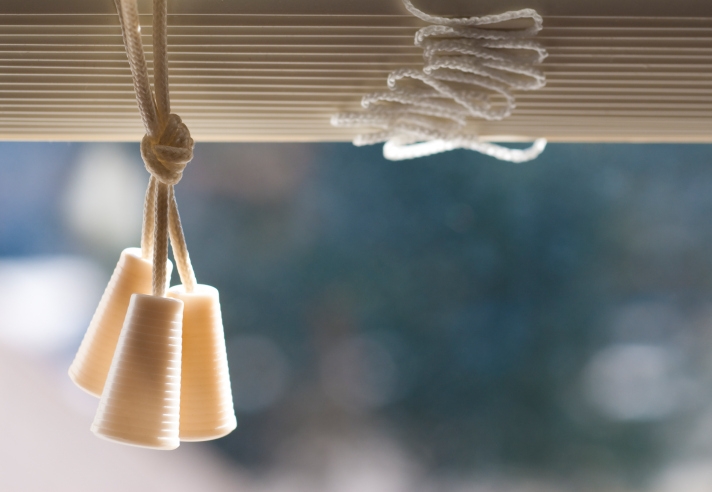1. See
2. Hear
3. Speak
4. Sit
5. Stand
6. Walk
7. Write
8. Sing
9. Laugh
10. Cry
Repeat as needed.


Is it possible to live in a universe without fear?
I wish more people would ask.
Anxiety disorders are the number one diagnosis of the mental health industry. Each year, about 40 million American adults seek treatment for debilitating fear and dread. Now children are swelling their ranks. In one recent year, 85 million prescriptions were filled for the leading antianxiety drugs. Antidepressant use has quadrupled over the last twenty years. About one in ten people suffer from chronic sleeplessness. Deaths from prescription painkillers are epidemic and higher than those from illegal narcotics. There are 140 million people in the world with alcoholism. In America, heavy drinking is the third leading preventable cause of death. These numbers may not be completely accurate, but they are entirely true. If they don’t apply to you, then they apply to people you know and love, people you live with or used to live with, people barely alive or dead too soon.
We live stupefied by our own deep terror, our unmet fears. Out of fear, we crush our own spirits, break our own hearts — and if we don’t stop — rot our own flesh.
How do we end up like this? I don’t know why we reach for noxious cocktails to drown our fear and pain, but we all do, and they don’t work. Every time we turn away from what is right in front of us we are headed in the wrong direction. So don’t turn away.
These days we live in what we consider to be a mobile society. It seems like we can do anything from anywhere. And yet, we are immobilized as never before. Some of us are too terrified to unlock our doors and step into our neighborhoods. Too timid to take a walk, drive our cars, or board a plane. We live straitjacketed by our touch screens and chained by convenience. If what we’re looking for isn’t on the closest corner, like Starbucks, or streaming, like Netflix, we don’t feel terribly inclined to go farther. I hardly ever have to leave my own confines, having fashioned a world in which nearly everything is delivered to me automatically.
Nearly everything. read more

Follow the humble. They will lead you to dignity.
Follow the gentle. They will lead you to strength.
Follow the kind. They will lead you to gratitude.
Follow the silent. They will lead you to truth.
Follow the simple. They will lead you to wisdom.
Follow your heart. It will lead you home.
Follow the path. It will lead you everywhere.
If you subscribe via email and cannot see this video, please click here.
A while ago someone reached my blog by Googling “teaching children about the beginning of time.” It made me wonder if what they really wanted to teach children was about the end of time. From time to time someone predicts time, or the world of time, is going to end soon. Anyone coming here for those kinds of answers is looking in the wrong place. I don’t know the answers. I don’t even ask the questions.
I don’t normally pay too much attention to how people reach this blog. Most of those who come for the first time come with this question in mind, another one that I answer, more or less, by saying I don’t know.
There’s a lot of talk out there about deep questions and dark fears, especially these days. I wish we’d all answer them more honestly than we allow ourselves. I wish we were more courageous about saying “I don’t know.”
That’s the answer to most things our children ask; that’s the answer to most things, period. Don’t know. Don’t even try to know. You can’t know.
That brings me to beginner’s mind.
If you’ve read Suzuki Roshi’s little book Zen Mind, Beginner’s Mind you may know a little something about what Zen calls “beginner’s mind.”
“In the beginner’s mind there are many possibilities, but in the expert’s there are few.”
Some define it as having an open mind. Some equate it with a child’s mind. I’ve seen it called a central concept in Zen.
That’s all wrong.
Whenever you start thinking about beginner’s mind it’s no longer beginner’s mind, because it’s not something you do inside your head. It’s something you don’t do. You don’t conceive it, define it, explain it, or label it. You don’t measure it like we do with the finite concept of time; you live in it as your infinite universe. Isn’t it lovely?
You don’t know beginner’s mind, but if you learn to slow down and stay in one place, you can begin to see it. And seeing it, you can totally be it.
There is an end to what any of us can know. But there is no end to this beginning. Can you see?
Have another look. There’s still time to begin.
Beginner’s Mind One-Day Retreat
Sunday, Sept. 11, 9 am-3 pm
Hazy Moon Zen Center
Los Angeles
Get Maezen’s writing delivered to your inbox.
Subscribe to my newsletter • Come to a retreat • Friend me • Follow me.

Q: I am confused when you say, “Mindfulness without meditation is just a word.” Do you mean that in addition to practicing mindfulness whenever we can throughout the day, we also need to spend time in quiet mindfulness meditation?
A: I understand the confusion. The current mindfulness movement originated as a way to share the benefits of meditation in a medical or therapeutic setting. Although the practice of meditation was retained, the word “meditation” was not, perhaps because of its association with Eastern traditions. As a result, today there is some confusion that mindfulness and meditation are not related. Mindfulness is attention, true, but meditation is the cultivation of one’s attention. We cannot be mindful without practicing paying attention. If we are only thinking, “I am mindful,” it doesn’t get us very far. The old masters didn’t worry about words, but having practiced seated meditation, they took their concentrated mind with them throughout the day in all activities.
If one happens to only read books about mindfulness, the practice aspect may be overlooked.
Another analogy might be telling ourselves that we are full, when in fact we have failed to eat.
Good places to eat:
Beginner’s Mind One-Day Retreat
Sunday, Sept. 11, 9 am-3 pm
Hazy Moon Zen Center
Los Angeles
Quiet Joy: A Zen Retreat for Busy People
Oct. 28-30
Copper Beech Institute
West Hartford, CT
 You might think I’m using a metaphor when I say that my spiritual practice is doing the laundry. Metaphor or not, laundry is the practice of seeing things as they are. Take a look at how to go from the hamper to happiness in eight steps.
You might think I’m using a metaphor when I say that my spiritual practice is doing the laundry. Metaphor or not, laundry is the practice of seeing things as they are. Take a look at how to go from the hamper to happiness in eight steps.
Empty the hamper – Laundry gives us an honest encounter with ourselves before we’re freshened, fluffed and sanitized. It gives us a mirror to the parts of ourselves we’d rather overlook, and makes us take responsibility for our own messes. Self-examination reveals the pure wisdom that resides within each of us.
The instructions are in your hands – The tag inside a garment tells you exactly how to care for what you hold in your hands. Not just clothing, but very bit of life comes with instructions when we are attentive enough to notice. Doing it well may take more work than we’d like, but the effort is always worth it in the long run.
Handle with care – It’s inevitable: everything shrinks, fades and falls apart. Nothing stays brand-new. The most precious things we have are fashioned of flimsy fabric. Be mindful with each moment you have and you will experience your life in a different way. read more
These days kids are 2 going on 12. Mine is 18. What I keep in mind with my teenager is this one thing, the sum total of my old teacher’s advice on raising kids.
Become one with your child.
That may not mean what you think it means. It does not mean to fabricate phony friendship or rah-rah enthusiasm. Nor does it mean to harbor ambition, fear, hope, or dread. It means to become as your child is right now, meet them where and as they are, dissolving the distance from which you judge them. When judgmental distance disappears, you may see that the teenage years are very reminiscent of a far, far, earlier stage in parenting, when you tiptoed about, wanting nothing more from your child than that they sleep and eat, whereby they mysteriously and marvelously continue to grow.
When I become one with my daughter as she is, I find that the secret to parenting a teenager is to parent yourself. Here are seven ways to do that:
1. Be quiet! — Teenagers become as quiet as the quiet you once wished for. They seem to disappear inside themselves, but they are not lost. Accept their silence within your own nonjudgmental quiet. The silence you keep between you is undefiled love. Trust, faith and respect grow in the silence. That way, when your teen speaks, it will be something they really want to share.
2. Do not disturb — You’re worried about whether your teen has enough good sense. But what do you give them 24 hours a day? Doubt and distrust? A nag, prod, poke, or push? An ominous warning? Anxious oversight? All of the above? Imagine that your teen is now wearing the sign you once hung from the doorknob to the nursery. Baby sleeping. Don’t let your neurotic fears continually rattle the calm between you.
3. Feed yourself —Children learn to feed themselves. Now it’s your turn. As teenagers wrest themselves from their emotional dependence, parents can feel starved for love. Nourish your own neglected passions, purpose and interests. Fulfill yourself by yourself, and you’ll free your children from your emotional appetites. Now all your relationships can mature.
4. Draw no conclusions. — We are deeply attached to the illusory signs of “successful” parenting. As in all of life, the next setback inevitably interrupts our self-congratulation. The only conclusion is that there is no conclusion. Stay on the ride. See where it goes. It keeps going forever.
5. Grow up. This is what I remember from being a teenager. As I reached the age where I could see my parents’ foibles and follies, I wished for one thing only: that they grow up. Like my daughter, I am trying my best to grow up.
6. Knock softly. For a few more years at least, your children are still guests in your home. As with any guest, be a good host. Give privacy; respect boundaries; ask permission.
7. Wait for the door to open. It will. Because there was never a door to begin with. You are not strangers. You are not enemies. Two blooms on a single branch: you and your teenager are one.
This may be a good time to read:
8 Reminders for Mindful Parents
8 Ways to Raise a Mindful Child
10 Tips for a Mindful Home
15 Ways to Practice Compassion on the Way Home for Dinner
7 Tips to De-Stress Your Home
Rules for a Mindful Garden
10 Tips for Mindful Writing
5 Tips for Meaning in Cleaning
10 Tips for Mindful Work
***
Get Maezen’s writing delivered to your inbox.

From the moment you wake up until you close your eyes at night, there are simple yet powerful ways to be more mindful at home. And now I can tell you about it in your own home.
You are invited to be a part of a free, short online class I will be teaching on Tuesday, Feb. 9 at 6 pm PT / 9 pm ET called 10 Tips for a Mindful Home. Not everyone can make it to a meditation retreat, so I am excited to be part of a free one-week Awareness Series with practical, real-life strategies for living with more presence. Just sign up to hear all the teachings either live or anytime later. When you can find a moment to truly listen, you have taken the first step to mindfulness. I hope you’ll tune in!

When I travel around the country for meditation retreats, they usually take place in rooms that weren’t designed for Zen meditation. We may come together in a converted barn, for instance, or a basement, conference room or classroom. All that matters is that the room be empty. Then into the space we put a little bit of the form, or appearance, of a Zen retreat.
That means a bell, a statue of Buddha, and if allowed, a candle and incense; cushions or chairs; and a schedule of seated meditation, walking meditation, and chanting services throughout the day. It sometimes seems to me like we fashion a retreat out of popsicle sticks, but somehow it works.
To a beginner, the form appears strange. It’s rarely anything you’ve done before; classical Zen is not exactly a free-for-all. It’s important to see that the form of a retreat isn’t imposed, like a rule. It is offered, like a life raft. Form gives us a place and a way to rescue ourselves from ourselves. What do I do now, our crazy mind shrieks. Do this, form tells us. But how, we wail. Like this, the form shows us, and we have one less thing to fret about.
One of the first things I invite people to do at a retreat is write down the name of someone who is suffering, someone other than themselves. Even though people come to a retreat to get something—something called Zen—we automatically receive the benefit of our own practice. The point is to extend the benefit to others. The names go onto our retreat sick list which is chanted out loud as part of each day’s service. People might offer the name of someone who has cancer or is going through a personal calamity. Someone ill, elderly, or near death. We all know someone in those straits, and those are the first names that come to mind.
At the first morning service, people are self-conscious. Anyone would be. They are chanting things they don’t understand, mumbling words and syllables that don’t make sense. The chant leader is trying to find the right rhythm and pitch; the names on the sick list are mangled. But this is practice: everyone doing everything together for the first time. There is no criticism spoken, but of course, we often judge ourselves harshly.
With each service, the chanting grows clearer and more confident, and each morning the sick list grows a little bit longer. In our empty room, our minds are growing clearer. We think more compassionately of others when we stop obsessing about ourselves. We might approach the chant leader and ask, can I add one more name to the list?
On the last day of retreat, the chanting is strong and beautiful. The words merge in one voice. All are alert and present. The chant leader makes a point of sounding out each syllable. The names are carefully pronounced, and the list is twice as long. That’s when I hear the names of our children, partners, and parents: people who may not be distressed except by what we say to them, what we do to them, what we expect of them, and what we think of them. We have, by the last day, forgotten ourselves, and in that forgetting, taken responsibility for everything and everyone. After saying the last name on the list, the chant leader intones the final benediction:
May they be serene through all their ills
and may we accomplish the Buddha Way together
And in that instant, they are, and we do.
***
Even when it’s made of popsicle sticks, there is room in the raft.
Come sit by me.
Zen Retreat: Meditation as Love
Feb. 5-7, 2016
Kripalu
Stockbridge, MA
Get Maezen’s writing delivered to your inbox.
Subscribe to my newsletter • Come to a retreat • Friend me • Follow me.
 1. Make the room quiet. As if no one were inside.
1. Make the room quiet. As if no one were inside.
2. Eat and drink moderately. Empty before you fill.
3. Set aside all involvements. Do not invite disturbances.
4. At your sitting place, spread a thick mat. To cushion your knees.
5. Put your cushion on the mat. To elevate your spine.
6. Sit upright. Like a mountain.
7. Align your head. Ears over shoulders; nose over navel.
8. Keep your eyes open. Lower the gaze.
9. Give up. Thoughts, ideas, and judgments.
10. Breathe and be still. You can.
Adapted from Dogen Zenji’s Fukanzazengi.
###
Get Maezen’s writing delivered to your inbox.
Subscribe to my newsletter • Come to a retreat • Friend me • Follow me.
 Parents are rightfully concerned about the capacity their children have to pay attention, express empathy, and cope with the stresses that infiltrate their lives. Should we then coerce our children onto meditation cushions? Impose artificial silence, stillness or philosophical indoctrination? Before you do that, take a closer look.
Parents are rightfully concerned about the capacity their children have to pay attention, express empathy, and cope with the stresses that infiltrate their lives. Should we then coerce our children onto meditation cushions? Impose artificial silence, stillness or philosophical indoctrination? Before you do that, take a closer look.
Children are exemplars of the art of being. Wherever they are, they are completely immersed: in mud, in make believe, in laughter, in tears or in spaghetti sauce up to their eyeballs. Without a bit of self-consciousness, they lose themselves in what they are; they literally throw themselves away. This is the kind of losing in which mindfulness is found.
Without making a big deal about it, parents can gently encourage everyday actions that nourish and grow attention, empathy and self-care.
1. Read picture books – Illustrated children’s books have fallen out of favor as parents push children into early reading as a competitive outcome. Mindfulness is perception, and the rich visual content of picture books nourish the capacity to see, explore and relate to what appears in front of us.
2. Listen – When your children speak to you, turn your face toward them, meet their gaze, and listen. Your own non-distracted attention is a wellspring for theirs. We cannot extract from our children what we fail to give.
3. Sing – Encourage singing: at home, at play, in the bath, anywhere. Singing is breathing and breathing is the body’s natural calming mechanism. Hearing your children sing to themselves will release your own deep sense of well-being, and you will smile.
4. Smile – Smiling is a silent song. For heaven’s sake, greet your children with enough presence of mind to smile at them.
5. Brush teeth – The ritual of brushing teeth imparts subtle disciplines. It is rhythmic and therefore soothing; attentive and self-managing; and it stretches our capacity to tend to what we’d rather put off. Then add flossing. You’re developing concentration and fighting cavities in a single stroke.
6. Walk to school – If that’s not feasible, walk the dog. Walk to the store. Walk to the post office. Or just walk around the block. Walking is meditative and mood-altering. Moreover, walking in your neighborhood overcomes the isolation and alienation we can unwittingly breed in our lives. You might meet or make a friend.
7. Handwrite – The mysterious art and skill of writing by hand is being shunted aside by the keyboard. Writing with paper and pencil takes time, practice and mind-body focus. Researchers say it enhances learning, memory and ideation. Our children will all learn how to type, but will they learn how to write? Take time now.
8. Start now – The list of things we want for our children – and expect from them – seems endless. Where will we ever find the time? Until you know what it is to live in the present moment, you will never be able to relax. So relax! It doesn’t take long to be mindful. Devote one hour a day to giving undistracted attention to your small children. Not in activities driven by your agenda, but in free play and casual company according to their terms. Undivided attention is the most concrete expression of love you can give. Amply supplied, your children will return their love to the world through mindfulness.
Mindful children grow up in mindful homes.
***
Get Maezen’s writing delivered to your inbox.
Subscribe to my newsletter • Come to a retreat • Friend me • Follow me.
 Become the least grain of sand on the beach. —Maezumi Roshi
Become the least grain of sand on the beach. —Maezumi Roshi
I’ve had this quote on my mind lately, because it’s so easy to be distracted by the waves.
A few years ago I spent considerable time running the streets around my neighborhood. I told myself I was training to do a great and worthwhile thing: a marathon. I didn’t yet know that the truly great thing was taking even one tiny step.
Since I ran in the mornings, I would often cross a major intersection at commuting time, and lope through the crosswalk as the cars idled beside me. I had a startlingly intimate view of the solitary drivers, which is a rare and beautiful thing. We sit behind our wheels as if cocooned in invisibility. No one looked back at me. No one noticed the small, stooped lady striding past, smiling at them.
I might have said people looked grim, but that wasn’t quite true. They had no expression. They were unaware. It was going to be a day like any other. Not a single one of them would have thought they’d achieved greatness.
But they had. They had punched the alarm and gotten out of bed. Made the coffee and turned off the pot. Packed a sack lunch. Fed the pets, scratched the sweet spot under the dog’s chin. Smeared a smudge of butter across a slab of toast. And here they were, on time or late, calm or impatient, angry or bored, feeling utterly insignificant in the scheme of things.
My heart would swell at the sight of these great people answering the noble call: to do small things, and do them everyday. That’s why I smiled, but they didn’t see.
***
My dear husband was part of a recent space landing that bore as its slogan “Dare Mighty Things,” a snippet from a stirring Teddy Roosevelt quote:
Far better it is to dare mighty things, to win glorious triumphs even though checkered by failure, than to rank with those timid spirits who neither enjoy nor suffer much because they live in the gray twilight that knows neither victory nor defeat.
Teddy could rally soldiers to their doom.
The space project was daring, its landing sequence worked, and it brought a wave of relief and pride to a group of people whose careers are continually being foreshortened and whose intelligence, frankly, is a bit of a cultural liability. (At least in this country.) The landing of the mission, though, was not the mighty thing. I had an up-close look at this endeavor, so I know.
What was mighty is that thousands of people woke up each workday for many, many years in several countries to log onto their computers and answer emails, stand in security lines at airports, eat crackers at their desks, tell jokes and ask about each other’s kids.
We must not lose sight of this everyday greatness, or we might as well live on Mars.
***
My teacher tells the story of hearing firsthand Maezumi’s instruction, “Become the least grain of sand on the beach.” He thought at first the old guy was telling him he wouldn’t amount to much. Aim low. Give up. Settle for less. And then he realized that not amounting to much was amounting to everything.
Become the least grain of sand and you’ve become inseparable from the whole beach. Big, mighty, or great doesn’t begin to measure what you already are. All you have to do is see it, and then, keep doing the small things. The universe depends on it.
Two more little things you might want to look into:
Beginner’s Mind Meditation Retreat April 17-19 in West Hartford, CT
Prairie Bloom: A Zen Retreat Aug. 6-9 in Madison, WI
Get Maezen’s writing delivered to your inbox.
Subscribe to my newsletter • Come to a retreat • Friend me • Follow me.

